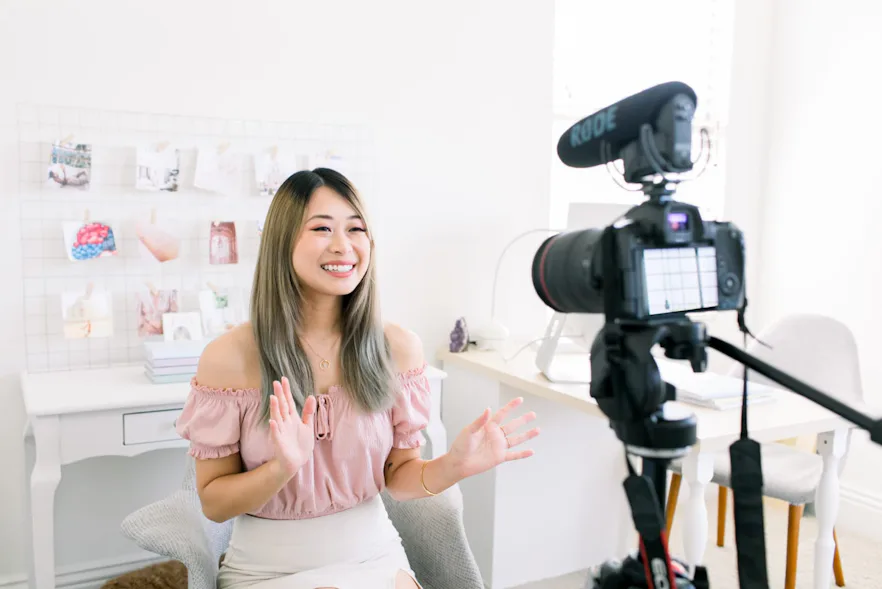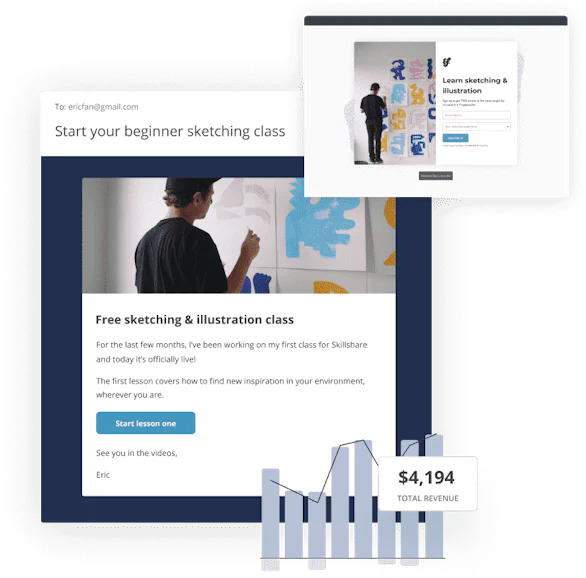Aileen greets me across a Zoom screen in an oversized lavender sweatshirt that says “Artist of Life.” The lower half of her hair matches her sweatshirt, and her 6-month-old puppy Togi tries to tug on both throughout our interview.
Her office is light and airy, with a fiddle leaf fig in the corner that’s almost as tall as the ceiling; she’s not sure she’s taking care of it right, she shares – but it’s the tallest and most vibrant one I’ve ever seen.
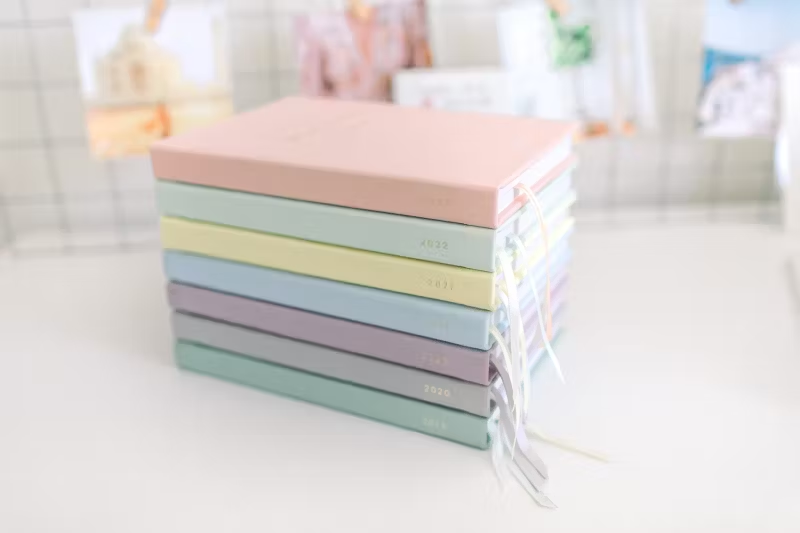
Above them is her 2020 vision board; most of the things on it became canceled or impossible, but she leaves it up there as a reminder that there’s still time.
To the right of her desk stands a bookshelf filled with books by Oprah, Elizabeth Gilbert, and Marie Kondo. Hanging above is a large framed poster from Aileen’s album release party, back when she was a musician. And to the right of that on the floor is a skateboard she was gifted from YouTube leaning on top of a box of handwritten letters she’s received from her YouTube subscribers.
In that box are things like a beautiful painting sent to her by a subscriber in Thailand and handwritten letters, like one that begins: “I’m 27 from Ireland, and I’ve been quite sick for the past two years…”
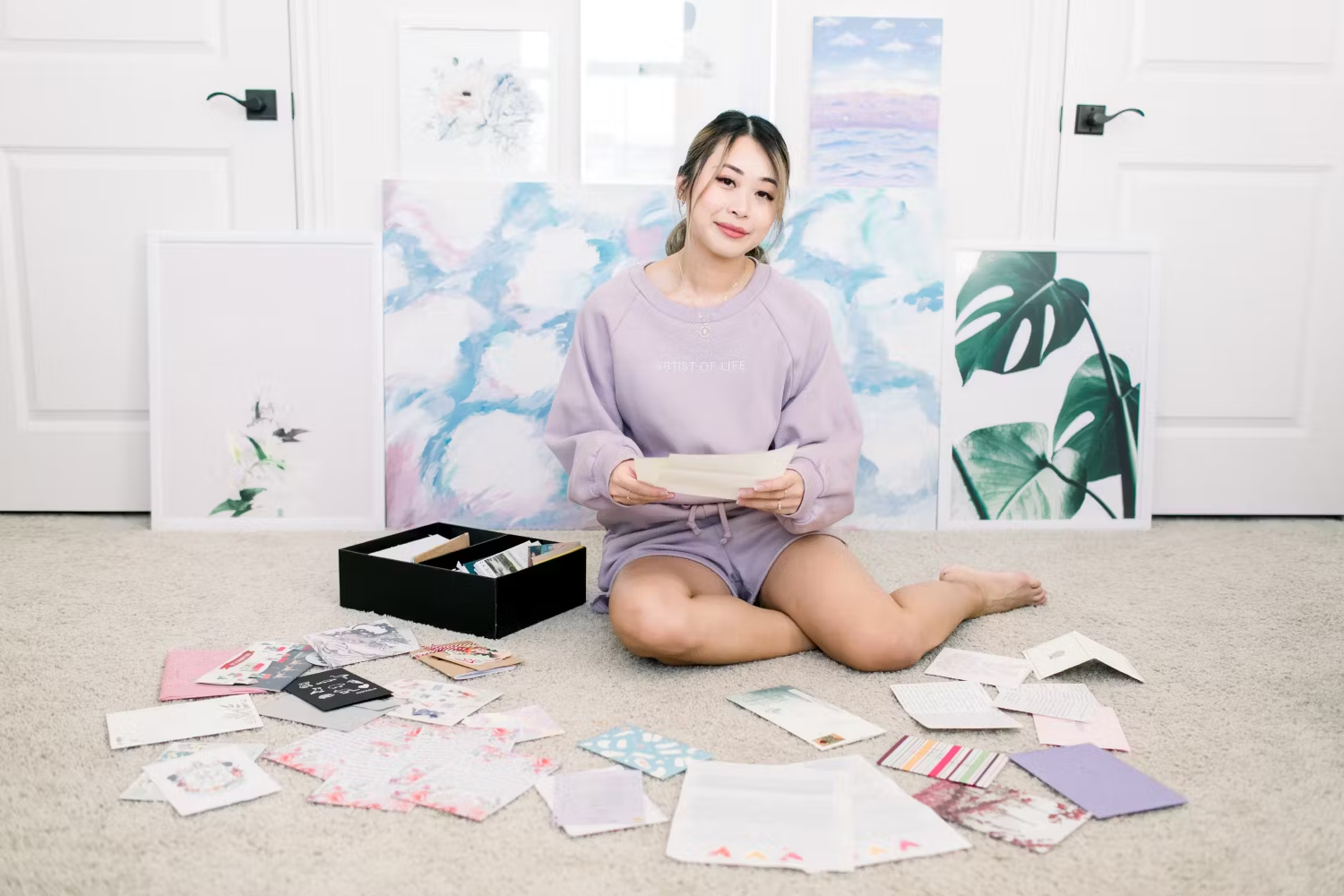
It was something she never imagined…especially because her first YouTube channel failed.
“You get a little bit addicted to the praise.”
Aileen grew up in a suburb of LA County that she describes as an immigrant community.
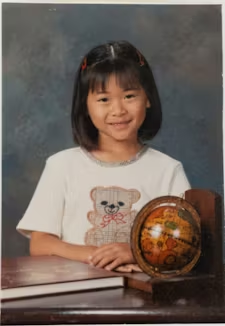
At her school, being in honors AP and IB classes, doing everything “by the book,” and pleasing your parents was the norm.
I think that praise is something you live off of; so you just keep doing things in order to appear like that perfect child. You get a little bit addicted to the praise you get from adults.
Aileen spent her early life doing only “what I thought I was supposed to do.”
Until she went to Milan as part of a study abroad program in college. It was the first time she traveled alone, outside the self-described “bubble” she grew up in. She remembers happily sitting in restaurants by herself, journaling, and eating lots of pasta and pizza. What stood out the most to her, though, was that, for the first time in her life: “Nobody was there to tell me what to do. I had no one to impress.”
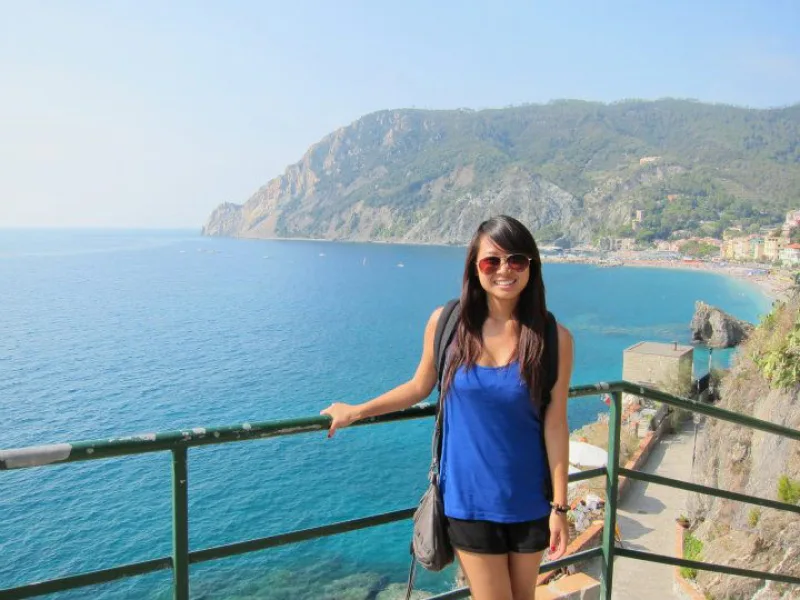
At USC where she attended college, similar to how she grew up, everyone was driven and successful. Many of her peers, she explains, were eventually featured on the Forbes 30 under 30 lists. But what if “success” before you’re 30 isn’t the most important thing?
In Italy, she asked herself questions she’d never asked before, questions like: Who could she be if she wasn’t striving to please everyone else?
“Is this what I want?”
After Milan, she returned to campus for her final semester of senior year, and back home everyone was obsessed with going on interviews and asking each other what job they had lined up after graduation.

She knew she couldn’t go down the corporate path everyone else was moving toward, not after Italy. Instead, she decided to pursue the one thing she really did love: music.
She’d started a YouTube music channel in high school where she sang and played covers. She kept it up during college, too – it was always just a hobby, for fun.
But after college, she wanted to do something creative with her life. Why not take music more seriously? Learn how to write songs? Produce original music?
After graduating college she continued living at home to save money and took online courses in music.
I had no clear plan.
But for the first time in her life, she was letting that be okay.
To make money, she got a part-time job working for a food festival startup.
For the next three years, she worked that job, took her music seriously, tried to grow her YouTube channel, and performed her music live anywhere she could. She played every month at the largest Asian food festival in the US, stayed with friends in New York and played venues there, and eventually performed at The House of Blues in LA.
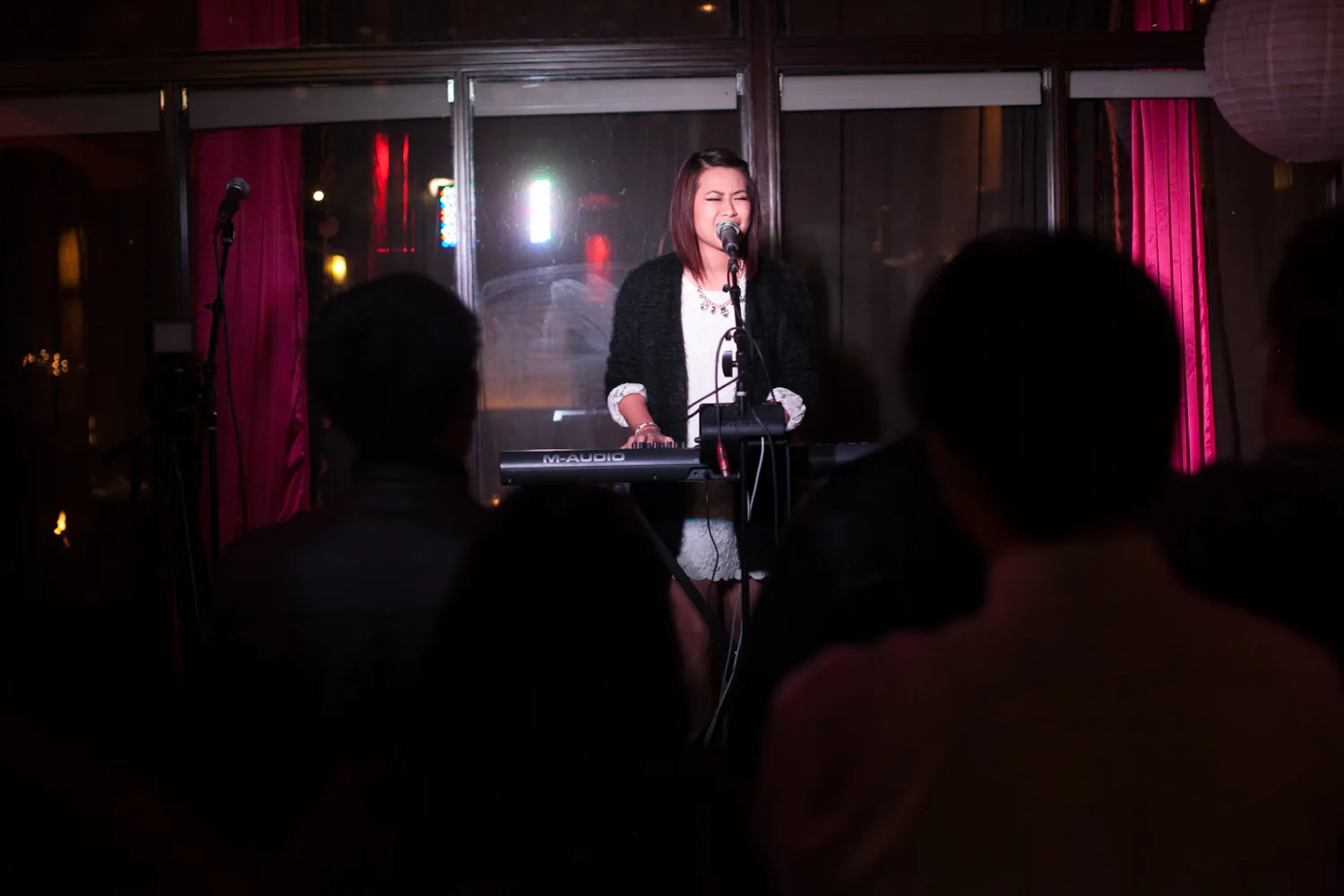
It was a season of me putting myself out there. I was really a nobody. I literally just said yes and tried to do whatever I could.
She created and launched her first album and was so thrilled by the experience that she couldn’t wait to create her second.
But then, she couldn’t.
She felt resistance. But that’s normal for artists.
Except this wasn’t the kind you’re supposed to push through.
It was the kind that points you in another direction.
Aileen couldn’t seem to write any more music. And her music YouTube channel felt stagnant. Instead of beating herself up, she asked herself questions:
Is this what I want? Do I want to be a musician? Is this the right path for me?
After her first album she felt satisfied and proud of herself. But through that process, she also learned about the realities of what it meant to be a professional musician: traveling constantly, going to different venues, lugging gear.
She realized: “I don’t think I love music enough to enjoy the parts I don’t like.”
But she didn’t want to let go of music completely, especially because it had become a beacon for all her creative and ambitious energy. She felt another breakdown coming on: “I thought I had found my path, but now I’m completely lost again.”
“You don’t have to follow the rules.”
She was 23, living at home, and still working part-time for the food festival startup. Inspired by the founders, she wondered if maybe she could channel her creativity into being a creator in a realm other than music?
What about an app? She took coding, UX, and UI classes and started developing an idea for a self-help app, a subject she’d been fascinated with and had read many books about for years after Milan.
But once she started to mock up the app, she got stuck again – she’d still need more help, more people, and more money, and once again, the idea just wasn’t powering her enough to keep going. It fizzled out.
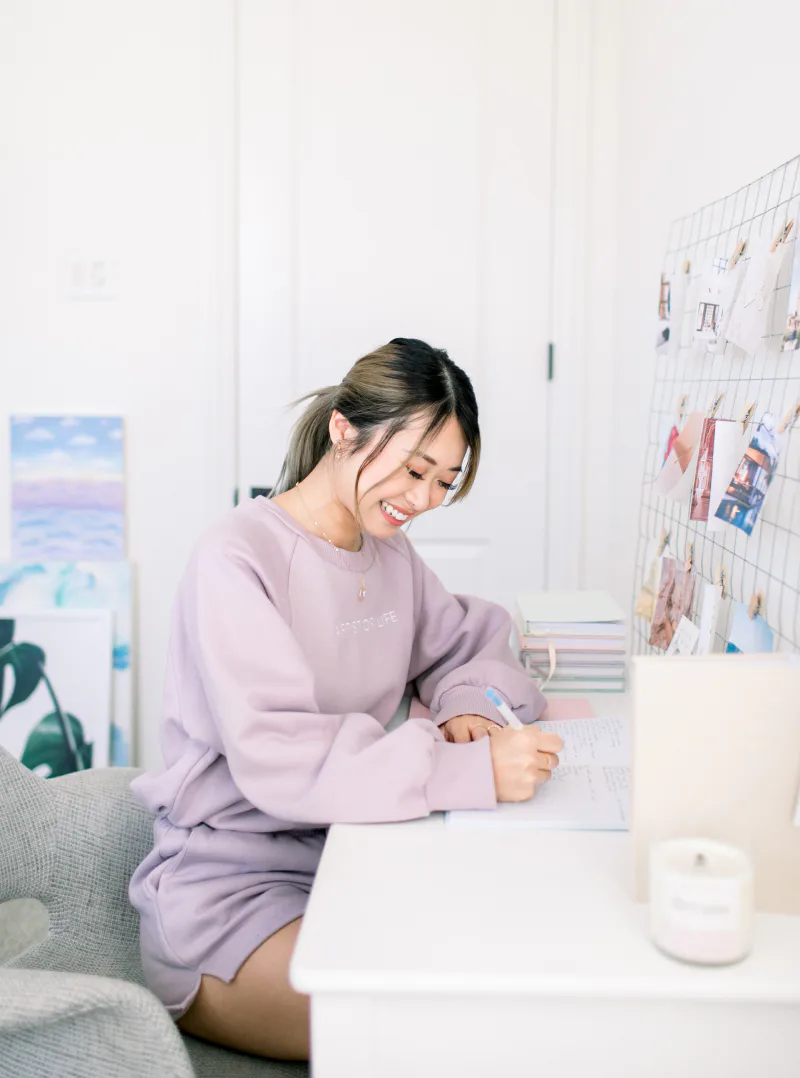
And then everything changed in an IKEA cafe.
She went there to journal, a habit she’d kept up since Milan, where she’d gone to an Italian IKEA to buy things for her apartment that semester. The IKEA in Milan looked the same as the one in LA, so no matter what IKEA she was in, she always felt like it was some kind of magical in-between place. It was where she could think.
As she journaled, she realized that while she was far from having it all figured out, she had learned a lot of lessons from this season of life, and she really wanted to share them. Like how she’d learned how to ask the right questions when she felt lost, stuck, or unsure.
She may not have a destination yet, but she knew how and when to change directions, and maybe that was something she could share to help others.
Although my journey was messy, I did learn a lot. And the most important thing I learned was: you don’t have to follow the rules. You don’t have to follow someone else’s syllabus step-by-step; you can create your own.
Sure, she didn’t have a full-time job, she was still living with her mom, and she wasn’t on the Forbes 30 under 30 list. She’d gone “off the beaten path” and yet she was thrilled when she realized: “I’m still alive and I survived.” Not being a “success” at a young age (by the world’s standards) instilled in her a new kind of freedom. She was happy with her creative life and all she’d experienced so far.
And now she really had nothing to lose; she wanted to tell other people about that feeling, show them how to ask the right questions, help them see it was okay to not have it all figured out, and encourage them to measure their worth by their heart’s standards instead of everyone else’s.
Right there, in that IKEA cafe, she decided to return to a dream she thought was dead:
It was time to start a new YouTube channel.
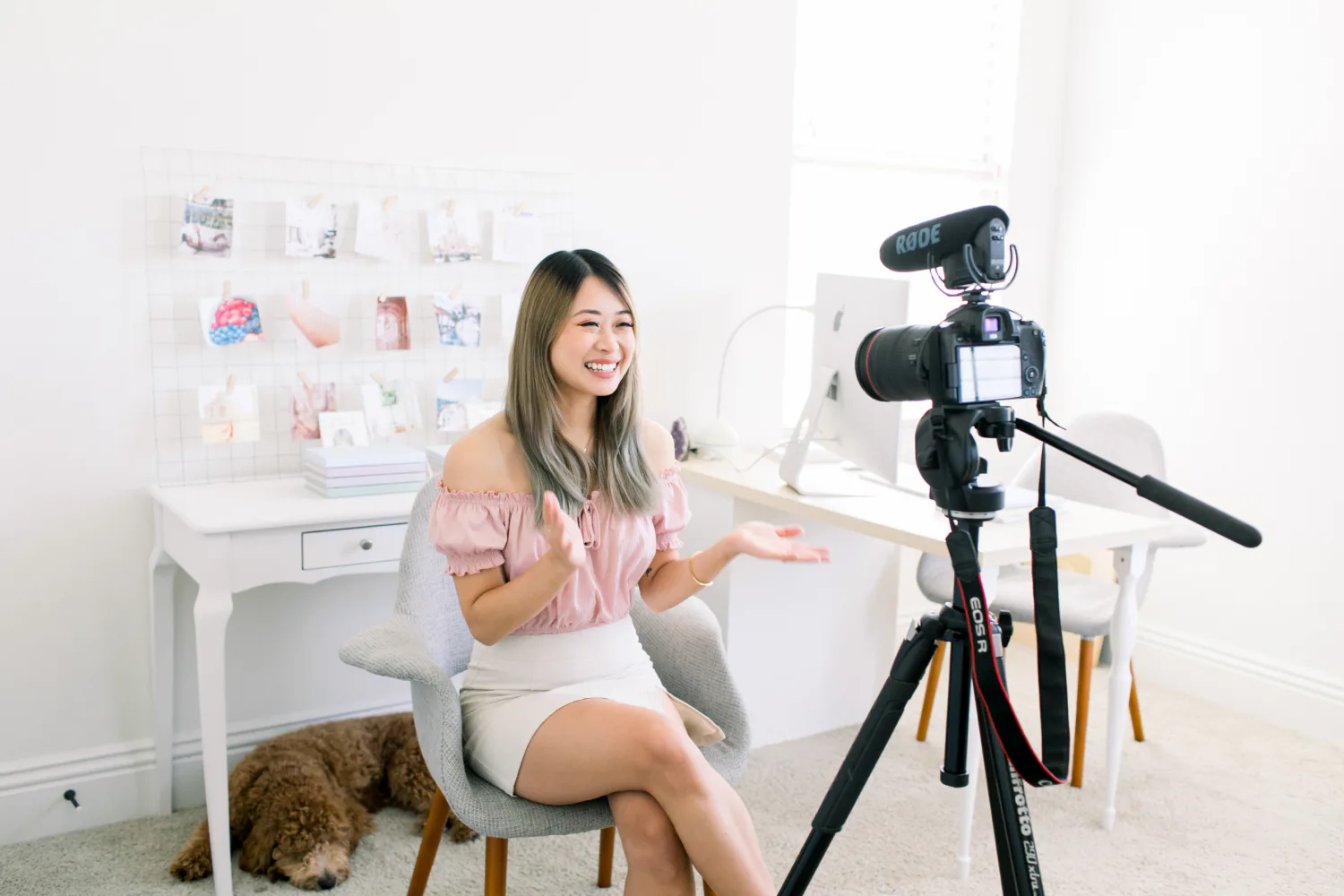
“I’m going to be myself.”
Her first YouTube channel, her music one, never grew the way she’d hoped. She felt like a YouTube failure. Could she really return?
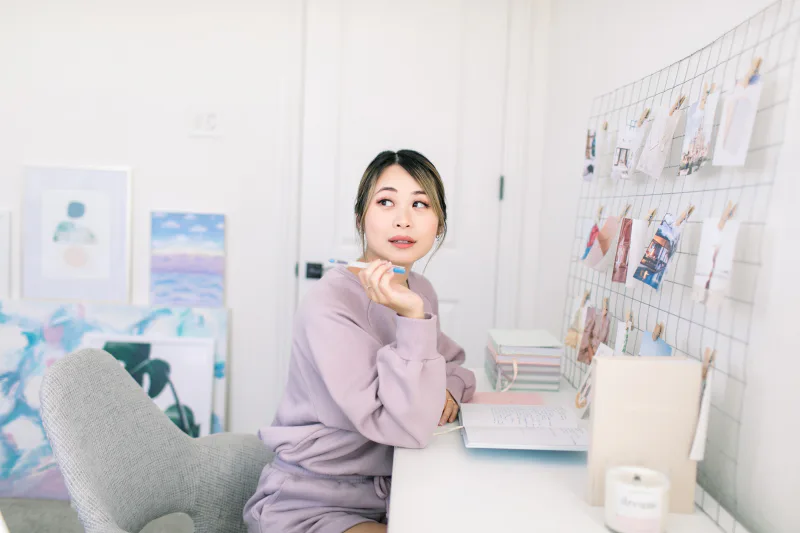
But while she felt resistance before making a second album or building the app, this time, for this dream, even when she seriously considered turning back and took the time to voice all her doubts, she kept going.
Because this time, despite all her doubt and hesitation, there was something on the other end of the resistance that appealed to her: she was inspired by the YouTube creators she loved and the lives they seemed to be living.
She had to at least try one more time.
She called her second channel Lavendaire, a word she created during a brainstorming session.
My hair was purple at the time. It was a symbol of: I’m going to be myself.
She also liked that Lavendaire sounded french.
Once she had a name, she recorded the first video for her new channel. But talking to the camera about everything she’d been journaling and reading about for years was terrifying. She’d never talked about these topics before.
These weren’t things I felt like I could talk to my friends about. At that age, my friends were partying, going to raves and stuff, which is understandable. But I was having a quarter-life crisis all those years.
She hit record anyway and hoped she wasn’t the only one who struggled like this. She hoped an audience would come, even if just a small one.
She recorded video after video, but she still felt embarrassed.
It can feel really cheesy when you’re talking about personal growth. Especially when you’re young and you want to look cool to your friends. My peers were working big jobs, making a lot of money. And I am 23 and I don’t make much money and I’m starting a brand new YouTube channel. It’s a little embarrassing talking about how to live your dream life when I’m still figuring out mine.
So I had to overcome that fear of caring about what other people thought of me.
How did she overcome that fear?
She first cites the book The Four Agreements and the chapter called “Don’t take anything personally.” But what it really came down to, she shares, is:
I didn’t have much pride left. When I was in school I had a lot of pride. I wanted to appear like the perfect person. But by that point I was like, “You know what, I’ve done so many random things, I’m just going to do it.”
She had nothing left to lose. And she already knew how to survive failure.
She also realized all her “failures” weren’t wasted; as she grew her second channel she was able to apply everything she’d learned from her first channel, all the business and marketing acumen she’d gained from business school and working with the food festival, and all the technical and performance experience she’d gained pursuing a music career.
She was having so much fun building this new channel, and it started to grow slowly, but surely.
Then the part-time food festival job she was still working offered her a promotion.
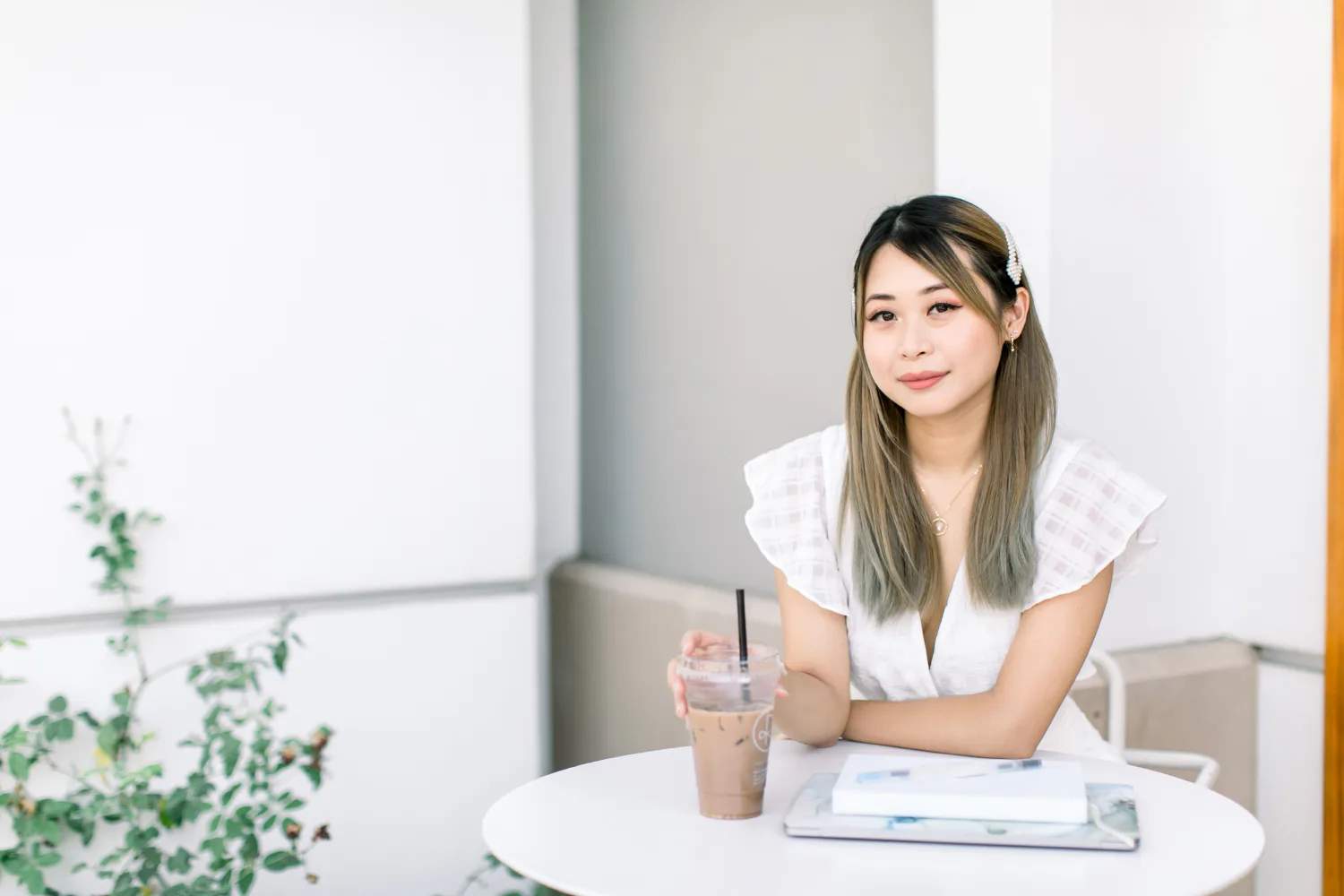
“I want to quit.”
She was grateful for the offer, but she knew it would mean moving in a direction she didn’t want.
When her boss brought her into his office to give her the promotion, she cried as she shared, “I want to quit.”
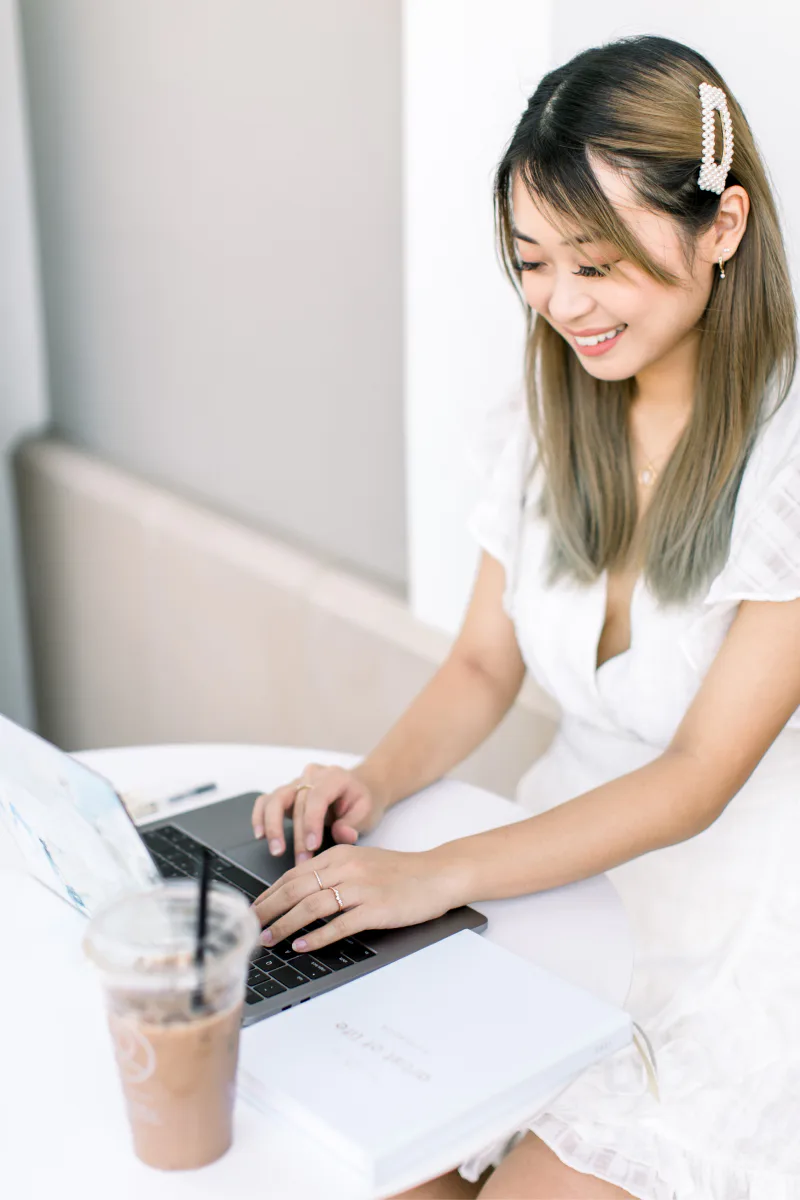
It felt like such a release. It was a good cry. I just had a feeling that it was the right direction. And I felt like Lavendaire was so aligned to me, even though on the outside it looked like nothing.
Even though it wasn’t making money, it didn’t feel like “nothing” to her. Because the depth of what people were saying in the comments meant everything. She found people like her, people who also felt lost or burdened by certain markers of success, and who found comfort, clarity, and relief in her videos.
The feedback I got from people in the comment section was so different from any type of feedback or anything I’ve experienced before; I actually felt like I was helping people.
Once she quit her job, she focused on consistency; her goal was to post one video a week for a year.
But after that first year of making consistent videos, Lavendaire still wasn’t making any money.
Comments and emails were still pouring in, however, and Aileen still believed in what she was doing.
I’m a big picture vision person, so I just saw the future vision. I was like, “This could be something I do for the rest of my life. It could become really big.”
She wasn’t focused on immediate monetary results; she was focused on the feedback.
The feedback was enough for me to keep going.
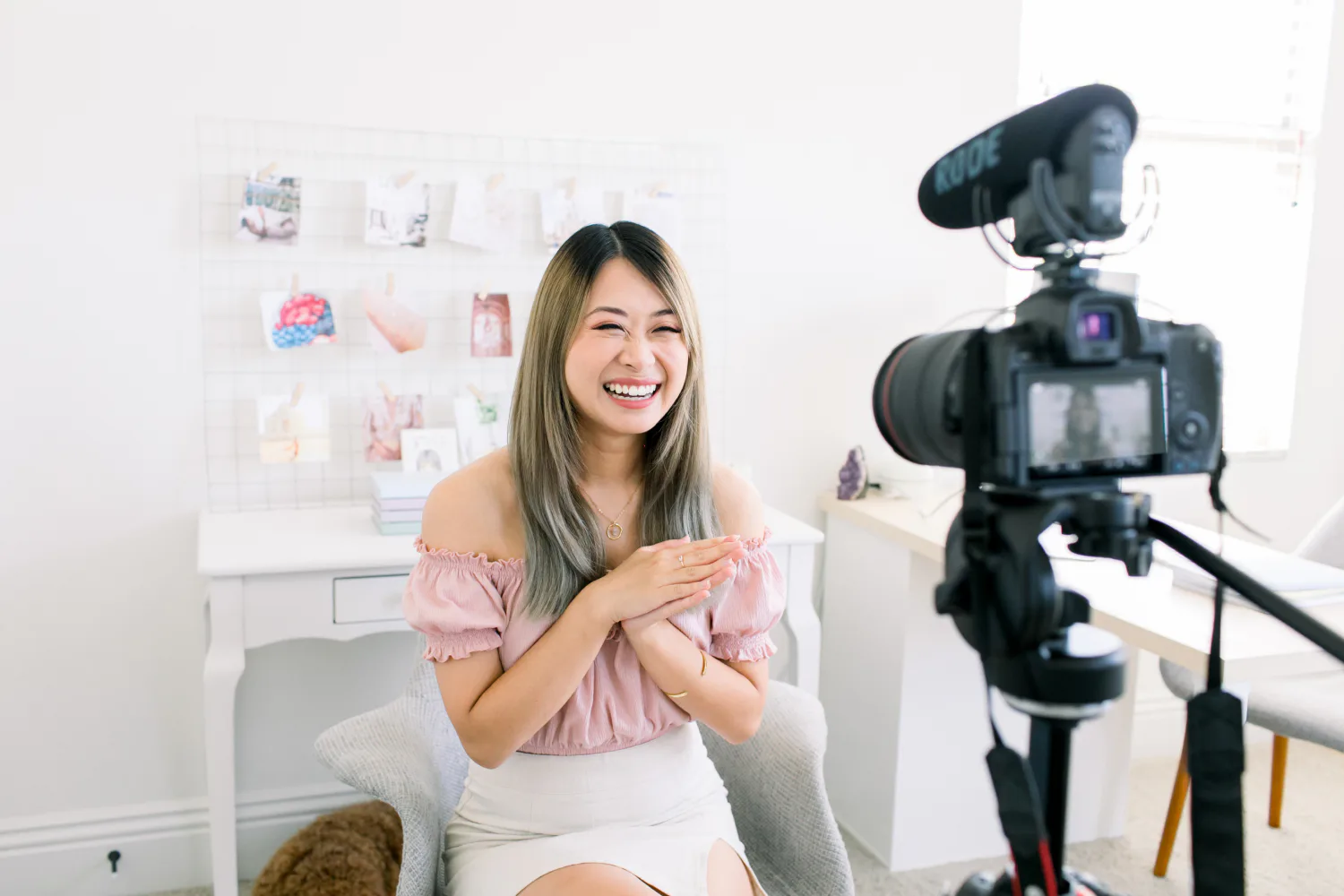
“That felt really empowering.”
In 2015, her channel grew immensely thanks to some videos she did inspired by the new book at the time, Marie Kondo’s The Life-Changing Magic of Tidying Up.
But the money didn’t come for another year until she got her first brand deal for a few hundred dollars. She was thrilled. Even more so when a few months later she got her next brand deal. She couldn’t believe someone was paying her thousands of dollars for one video, when by then she’d done about 250 for free.
But what really changed everything was when she decided to create her own product.
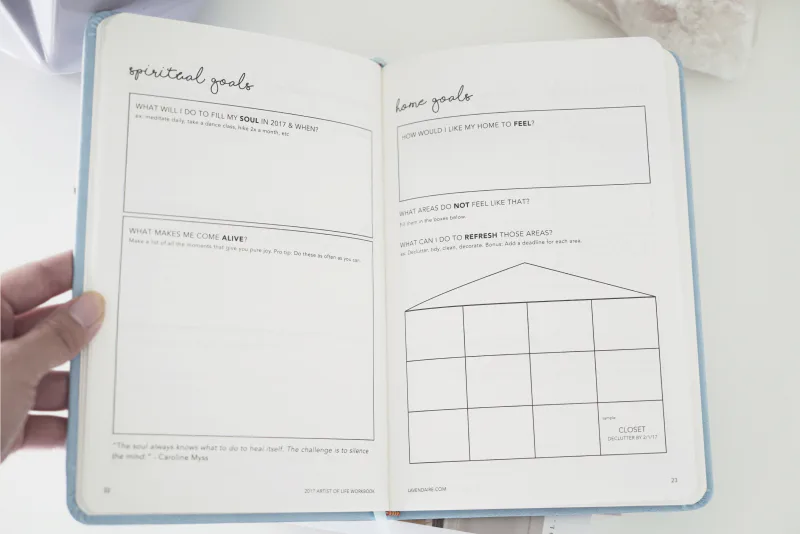
Inspired by all her years of journaling, as well as her self-help app and the feedback she was getting on all her videos, she decided to create a digital workbook to help people dig deeper into the questions that shaped her life.
The workbook would give them a chance to ask and answer those questions for themselves.
She created The Artist of Life Workbook as a digital product and sold it as a PDF.
The audience she’d been building for years bought it, and she was floored:
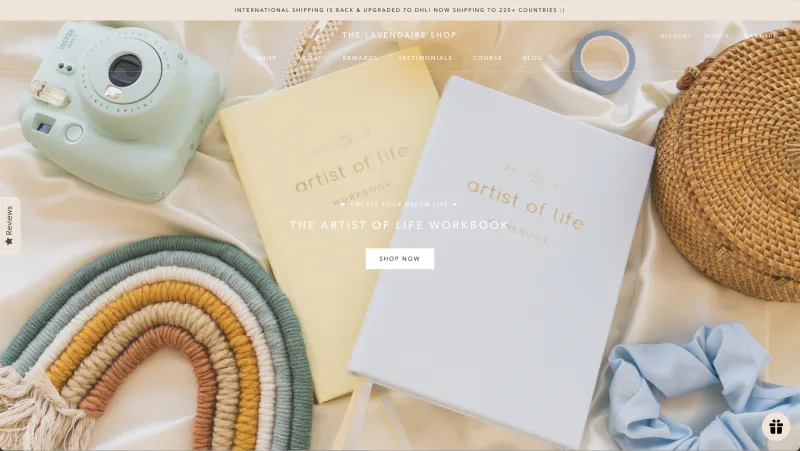
That was income coming from a product I created myself, and that felt really empowering. I was like, “Wow. I don’t have to wait for a brand to give me money. I can create something and sell it.”
It gave me hope.
It also gave her confidence. She realized she had a business.
And her audience wanted more. They loved the digital workbook so much that they longed to have a physical copy too.
After listening to that feedback, Aileen created the first physical Artist of Life Workbook.
Finally, she felt like she had something that could really help people the way she dreamed, something they could take to their own proverbial in-between places.
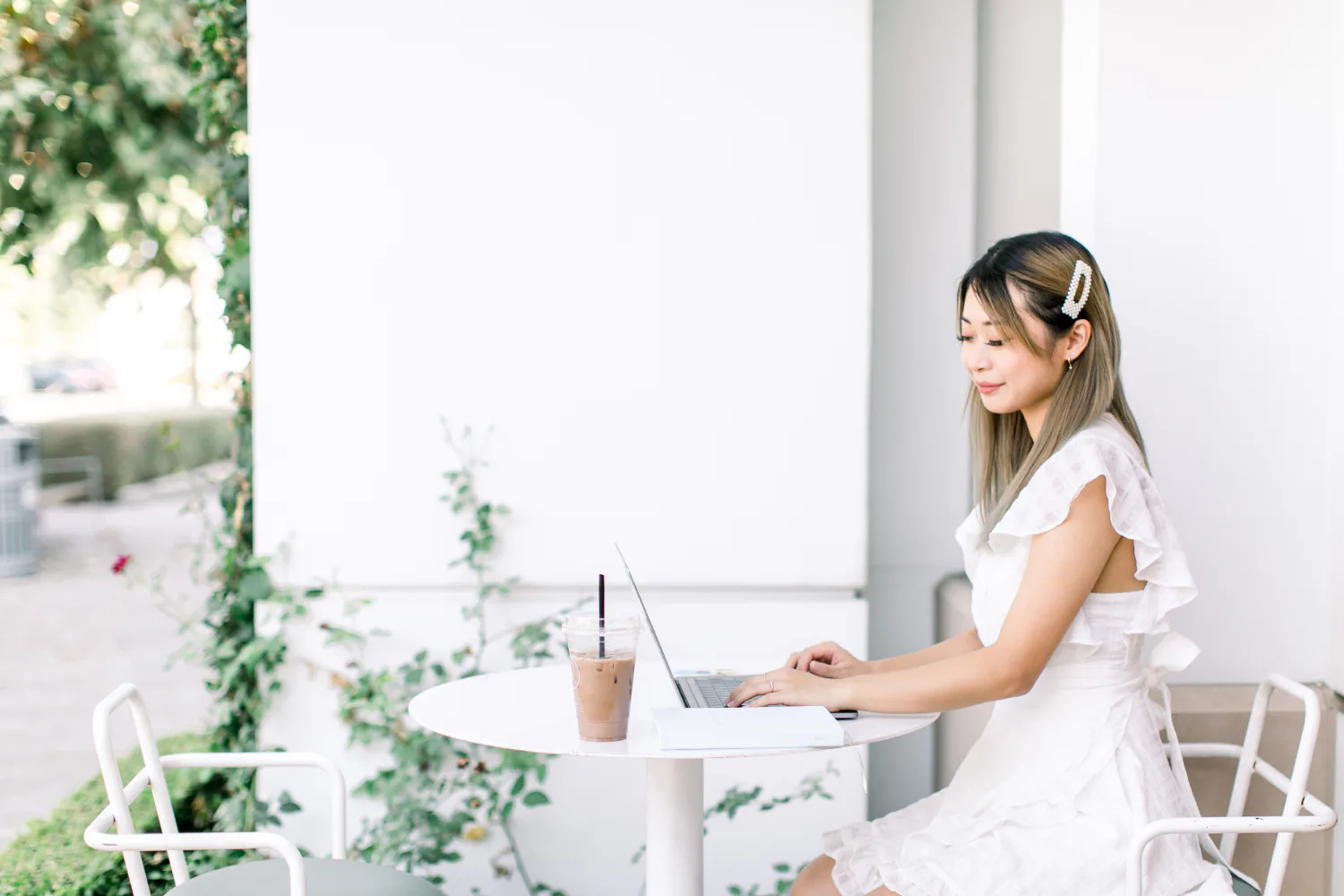
“Once the external stuff starts dropping, you start spiraling down.”
Aileen sold her workbook online and through the email list she’d been building slowly over the years at the advice of many of the online business courses she’d taken.
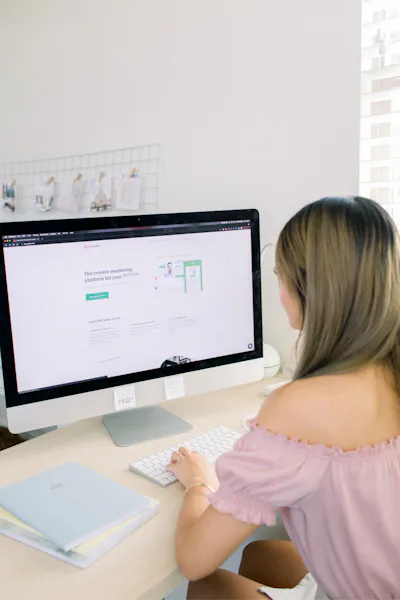
She didn’t always know what to do with her list, but she was glad she never let that stop her from trying.
I love email because it’s nice that you know these people are going to get your email. Because with social media, the algorithms change all the time.
And what I love about Kit specifically is I love tagging people who click a link. If I launch something and they want to learn more about this product or this online course, it can tell me who’s actually interested.
And people are interested. After 12 years of making videos, six years just focused on Lavendaire, Aileen’s Lavendaire channel hit one million subscribers in February 2020.
But by then, Aileen didn’t put too much of her self-worth in the numbers. Because when, in 2019, her steady channel growth dipped for the first time, she felt like she was failing again. Feeling a breakdown coming on, she realized quickly, “I have to learn to detach my sense of self-worth from the numbers on YouTube.”
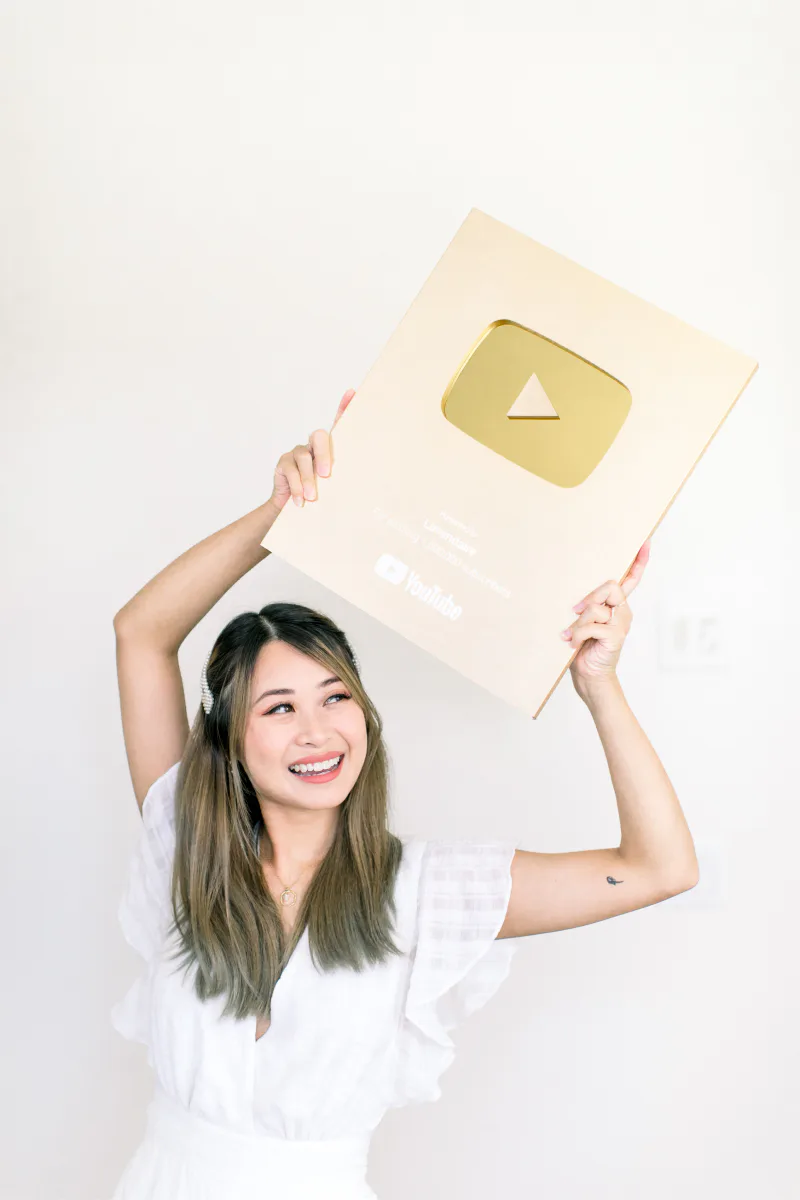
Easier said than done; how did she do it?
It’s hard to do. As an influencer I think everyone deals with that. If your views go down or your likes go down…how do you handle that?
I had to really find my worth in things outside of my career and the numbers, and I realized that so much of us define ourselves based on how productive we are or how much money we make, those external numbers.
Once again, even as a creator, she had to stop and separate her own values from everyone else’s.
How did she do it this time?
She made fewer videos, letting go of the feeling that she “had” to post every week. And of course, she asked herself questions:
What am I working so hard for? Why am I hustling so hard? Why am I stressing out every week getting so much content out? Am I happy working at this pace?
She created less than she ever had in 2019. And the numbers went down because of it, “but I had to be okay with that.”
It was weird how in 2019 I was making more money than ever. But it wasn’t the money number that I was connected to, it was the views number.
I didn’t feel good about myself because these views were down and that was scary.
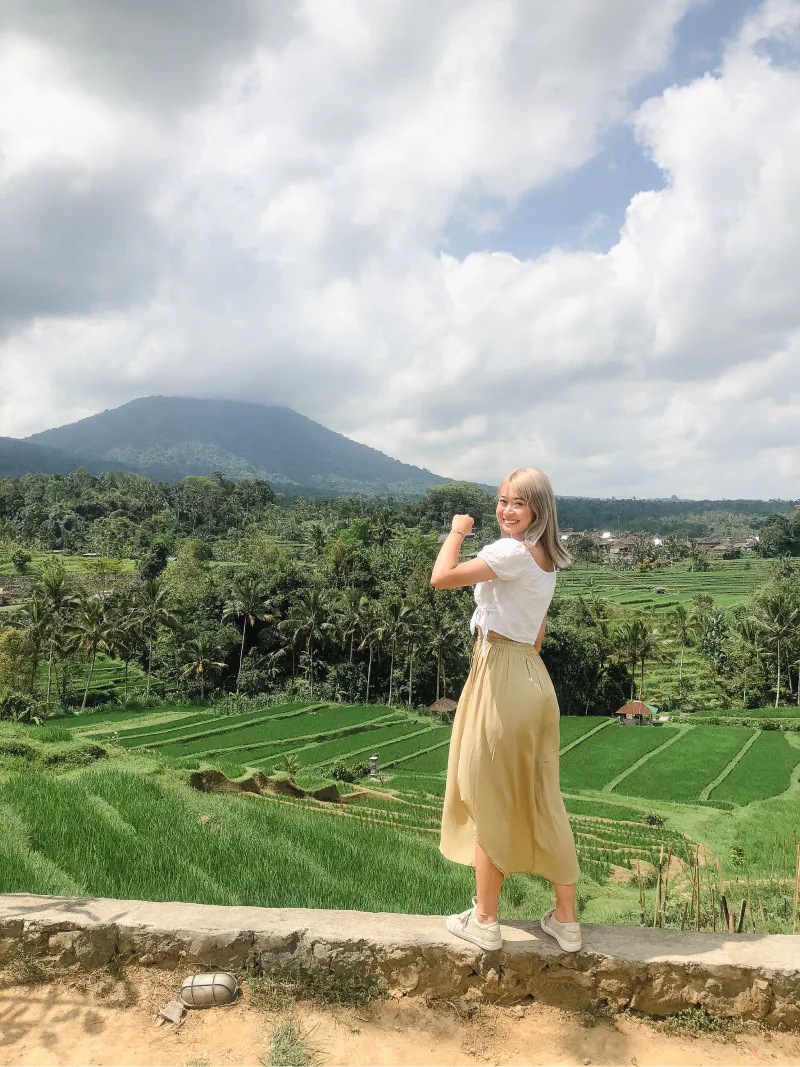
She realized there she still had a lot of work to do when it came to untangling her self-worth from external validation, from the praise or approval of others.
I realize it’s all tied to how I grew up. The self-worth is tied to getting praise from other people, appearing successful, appearing like the perfect achieving person. When that’s not how you should define your worth, because once the external stuff starts dropping, you start spiraling down.
It was a good lesson for me to learn to not attach myself to that as much. Because after you learn that this number doesn’t define your worth, it’s so freeing.
So that’s why even after I hit a million, by that point I was a little more detached. A number is a number. I feel less of a slave to the numbers now.
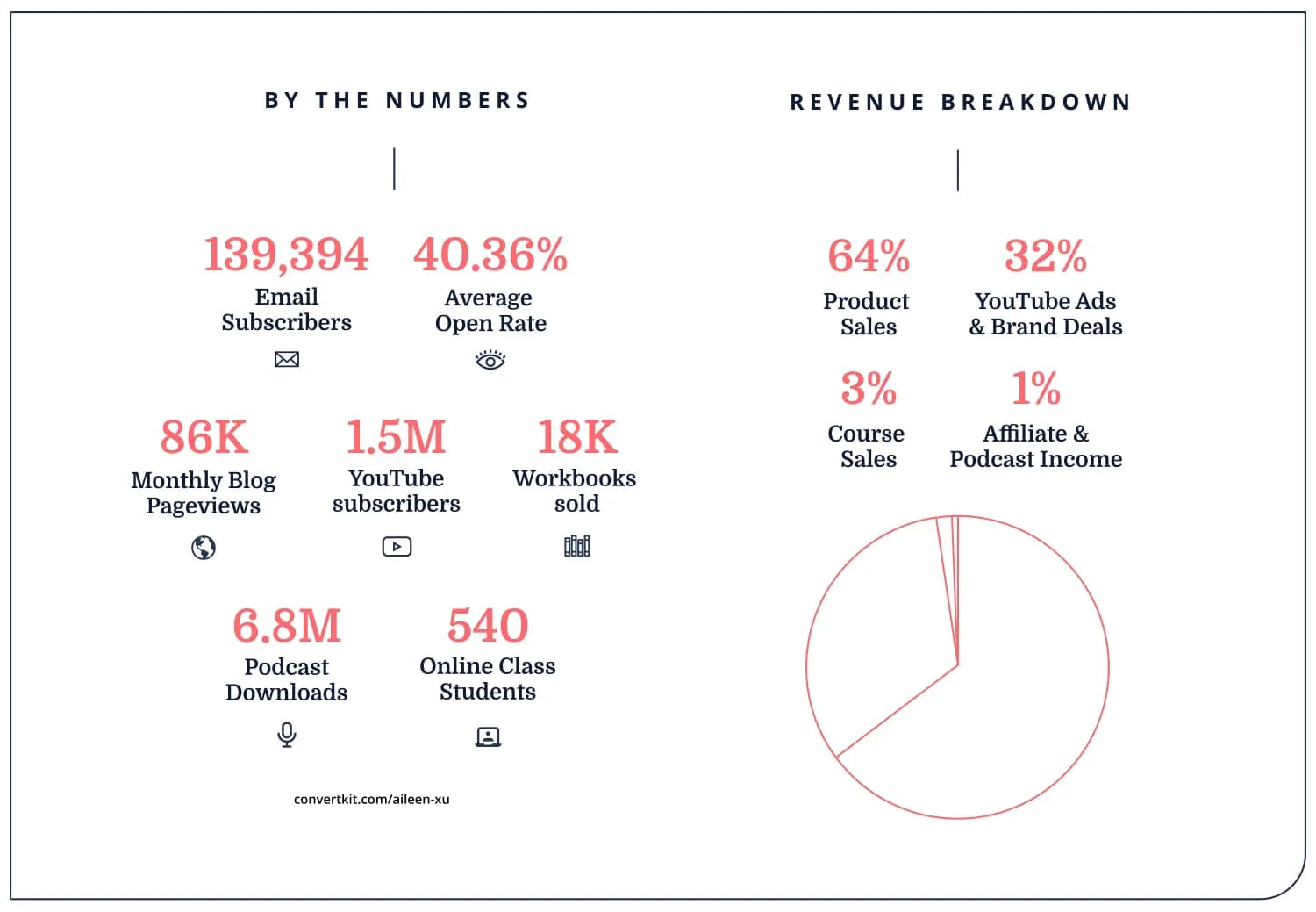
You have to know yourself so well in order to know what you want in life.
What is your intuition telling you?
Because if you are always asking other people for what they think, or you’re talking to other people or if you’re consuming the media too much, those voices can become your own. You can’t tell the difference between what’s you and what’s someone else.
Spending time alone tells you which voice is you.
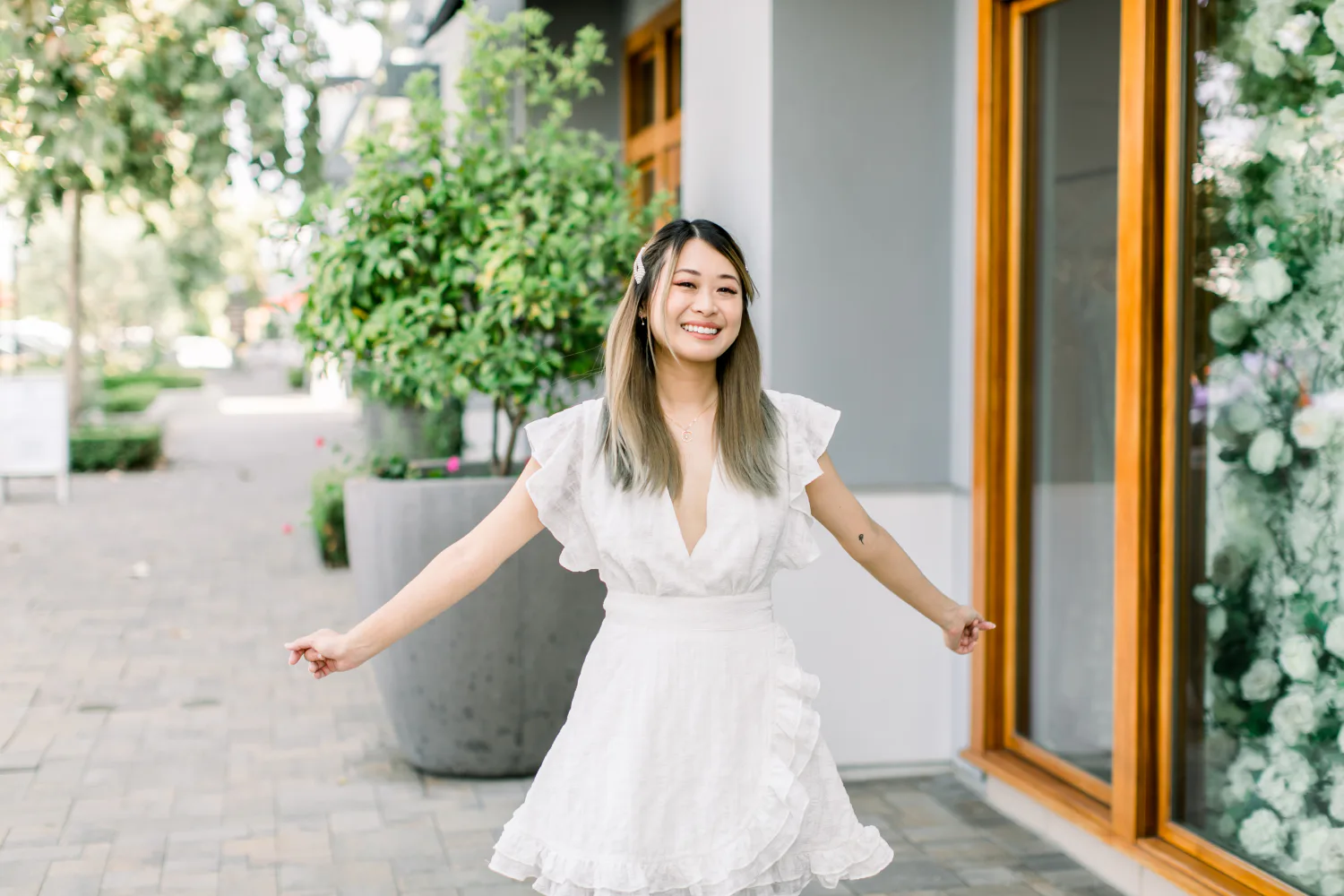
“Uncertainty scares us.”
Aileen will be the first to share that her love of personal growth and vision boards and meditations and journals doesn’t mean she thinks you can plan everything perfectly.
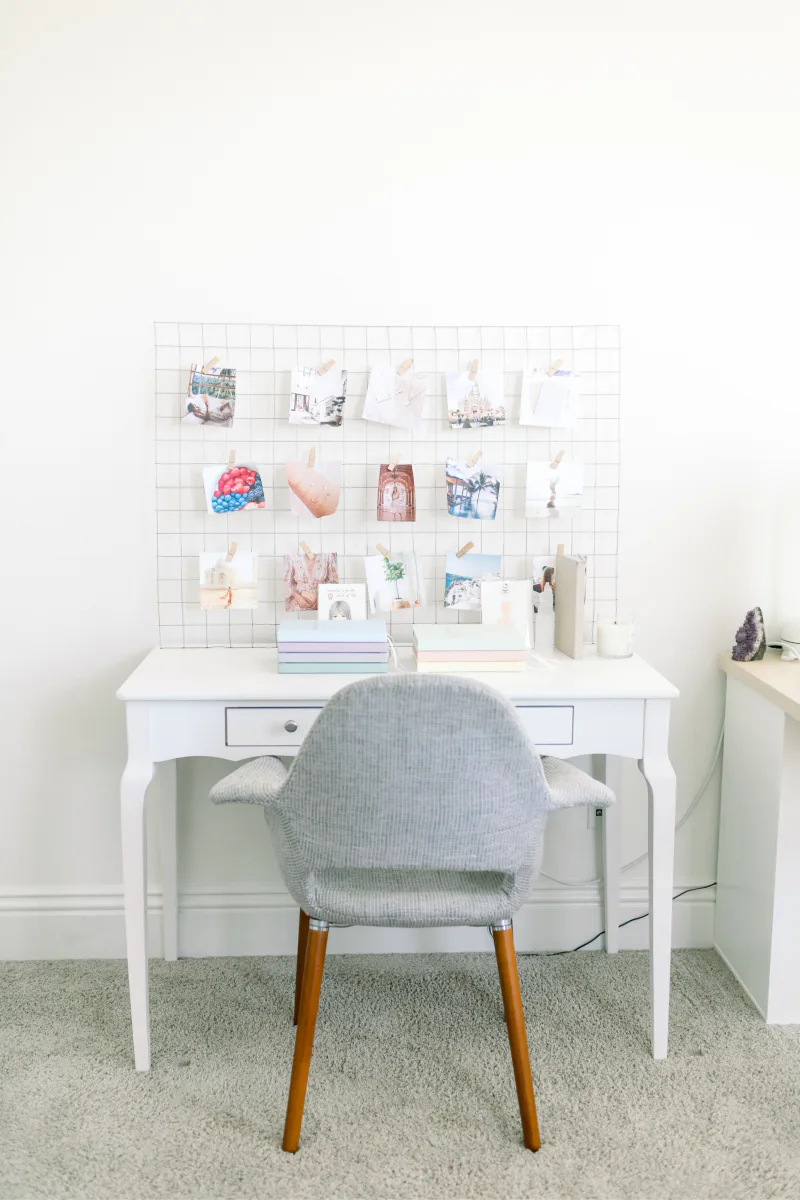
Aileen’s 2020 vision board.
It might surprise people to know that she’s not much of a planner, and in many ways that’s what makes her workbook so unique.
It’s not about having a perfect plan – it’s about getting to know yourself better in each season of life, so that when things to do go awry (as they often do) you’ll be able to hear your own voice, ask the right questions, and remember your dreams (even when they’re just a distant whisper).
It’s that sense of possibility that still keeps Aileen going, especially in the unknown:
Most people think the unknown is scary. Sometimes it is. But I want to challenge people to see it as exciting instead.
Because no matter what happens, no matter how bad it is, if something horrible happens tomorrow, it’s still going to make for a very interesting story.
If your life is vanilla every single day, it’s not that interesting. Who wants to watch that movie?
I think seeing life as a movie helps me be okay with the ups and downs and feeling lost. If you’re going through a terrible time, yes, it sucks. The emotions are still going to be there, but it gives you appreciation for the wide range of life.
Before Lavendaire, I was lost. I was frustrated and figuring it out. But I also found myself with so many random fun opportunities. Because when you have so much space, you say yes to more things.
Life looks more interesting and exciting when you don’t have things figured out, because of the element of surprise and uncertainty.
Uncertainty scares us. We hate uncertainty and unpredictability, but it’s in the surprise and the unknown that the most rewarding, exciting, unexpected things happen.
If you’re feeling lost, that is such a blessing because you have so much space; your opportunities are endless. You’re still living life, and you don’t know what’s going to happen tomorrow.

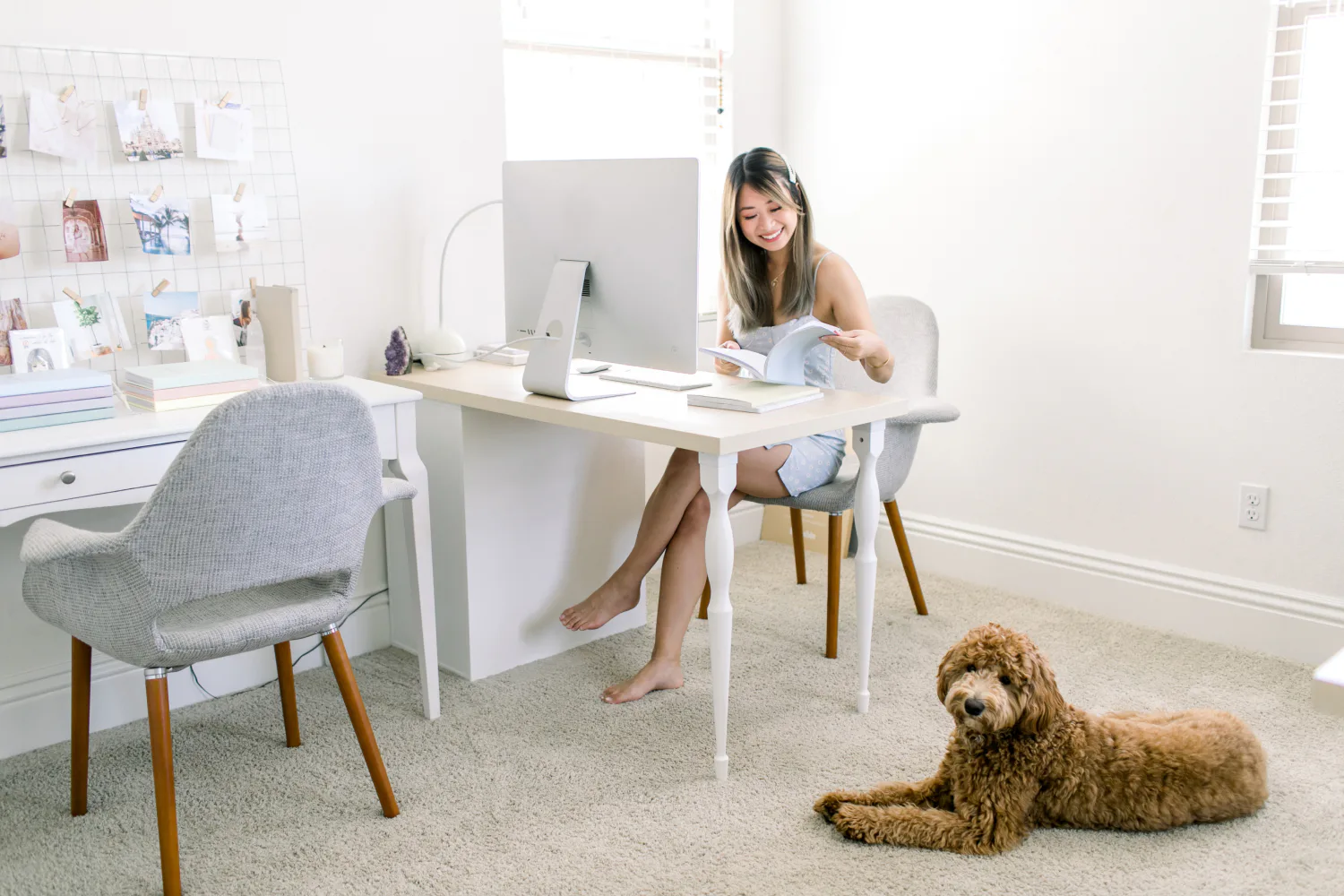
You can connect with Aileen on Instagram, subscribe to her email list, or learn more at lavendaire.com.
